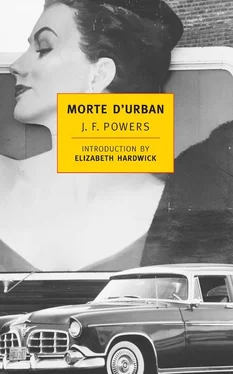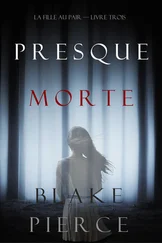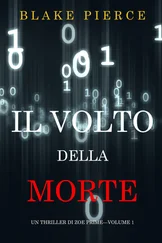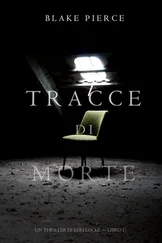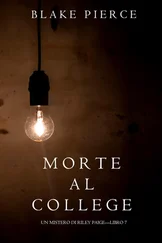“What kind of game?”
“Well, deer do.”
Father Urban doubted that any deer in its right mind would show itself in broad daylight in such an open area.
“Gophers,” Wilf said, patting the rifle. “That’s what I’m after.”
“For a moment, I was afraid it might be people,” Father Urban said, smiling, remembering the big rabbit who shot the hunter in Struwwelpeter .
“It’s no laughing matter. They’re here in great numbers. See.”
Father Urban observed a small, smooth hole in the ground. “They can play hell with a golf course. Or is that some-thing else?”
“That’s your pocket gopher, or ground squirrel, but they’re all the same.”
“Must be hard for you to shoot with mittens on.”
“Think so?” Wilf aimed the rifle at a tree stump in the distance, fired, and missed. He had released the trigger by a little pressure. “Pretty sensitive instrument. That’s why it’s best to keep the safety on.”
“Gun empty now?”
“No, she’s good for a few more.”
“Where’s the safety?”
“Right here,” Wilf said, snapping it on without comment. He put out his hand. “Long time no see.”
Father Urban shook the mitten. He hadn’t seen Wilf for several years — the last time in a forest preserve near Chicago, at a Serbian national picnic, or had it been Croatian? “I Am an American Day,” anyway, with Father Urban, in a major address, welcoming the foreign-born in the name of all the discoverers of America, St Brendan, Leif Ericsson, and Christopher Columbus, all Catholics, lest we forget…
“You drive up, Urban?”
“Drive, hell.”
“I thought maybe somebody drove you up from St Paul.”
“I came by train and after that by foot,” said Father Urban. He explained about the taxi.
“Should’ve given us a ring here. We’re in the book now.” Wilf sounded rather proud of this. “I could’ve met you.”
“I didn’t know but what you’d be busy.”
“Not so much doing in the morning.”
Father Urban asked about the red-brick building.
“Not in use at present,” Wilf said.
“Looks the more habitable of the two.”
“More about that anon,” Wilf said and pointed to a battered pickup truck parked behind the old stone mansion. He had found it in one of the fields, he said, and seemed to think that this would be hard for anyone to believe. “Quite a break, wouldn’t you say?”
“Still runs, huh?”
“Does now. Needed a bit of work. Quite a bit, in fact. But a lot less than some people imagined.”
Father Urban guessed that “some people” referred to his immediate predecessors, particularly Father Louis, a capable man, one of the few Clementines about whom that statement could be made.
“If I’d listened to some people, the old bus would be rusting away in some dump now,” Wilf said. “Oh, I know it’s not much for looks.”
“No,” said Father Urban.
“But we needed some means of transportation, and it came down to this or nothing.”
“A hard choice.”
Wilf stiffened. “Urban, you know how the Order’s run. I don’t have to tell you we’re on our own here. Sink or swim.”
Father Urban nodded slightly. The members of the Order did have to support themselves wherever they were, but indigence, Father Urban felt, was too often a cloak for incompetence. And wasn’t it bad enough for the Order to own and operate such a vehicle without advertising the fact? On the door of the old wreck, in green paint, for everybody to see, were the words: ORDER OF SAINT CLEMENT.
Wilf kicked one of the tires. “New rubber all around,” he said.
Father Urban grunted and moved on, drifting around to the front door of the old mansion. “The man at the station kept calling this ‘the Home.’”
“We’re lucky it isn’t called worse, considering all that’s gone on here.”
“Like what?”
Wilf said that the old house had been built for a lumber baron who had murdered his wife and a servant and killed himself — not in the house itself but in a barn that had long since disappeared. Quite a scandal in its day, and this probably accounted for the use to which the property had been put subsequently, for it had then been purchased by the county and turned into an old-people’s home, really a poorhouse. Fortunately, all that was very much in the past — all but the name “the Home.” In the thirties, the place had been operated as a sanitarium specializing in alcoholics. The red-brick building dated from that period. The place had continued as a sanitarium until World War II. The federal government had been interested in it then, but had backed out at the last minute. “Backed out only because the war ended. If the war hadn’t ended, I doubt that we’d be here today.”
“What is the story on that?”
“I’ll go into all that later, Father, if you don’t mind.”
“Not a-tall.” Father Urban hadn’t noticed the wrought ironwork around the porch of the old house before, because of the heavy growth of vines. “A little bit of old New Orleans,” he said.
“You might say that,” Wilf replied, as though he didn’t know whether Father Urban meant to be critical or not.
“Been doing some painting, I see.” On the porch there was quite a gathering of rocking chairs, freshly painted, green.
“Sometimes it’s what you don’t see,” Wilf said. “Funny thing about these chairs. For a long time, I knew something was wrong, but I didn’t know what. Then one day it dawned on me — too many chairs. Too many of these rockers. So some I painted, some I threw out — those beyond repair — and the rest I put up in the attic, for the future. Another man might have seen what was wrong right away.”
“Oh, I don’t know about that.”
Wilf took one of the chairs by the ear and lined it up with the others. “You know, the evenings here can be very nice sometimes.”
“Is that so?”
“Just sitting here, watching the sun go down in all its glory. The house faces west, you know.”
For a moment, Father Urban saw the two of them as others might someday see them — in a snapshot: “Frs Wilfrid and Urban in their favorite rockers.”
“A grand place, this,” said Wilf, looking out at the grounds.
“Yes,” said Father Urban, looking at the bare trees and bushes, the dead fields, the trees in the distance like black whiskers on the winter horizon.
“You cold?” said Wilf.
“Just numb is all.”
They passed through a vestibule, through a door the upper half of which was frosted glass, with the letter “T” on it, and were in the house proper, at the foot of a wide, open stairway, and the juncture of two dark corridors. Immediately to the right there was a door with a sign on it saying, in green paint, OFFICE, and here Wilf left the rifle. Then saying, “First things first,” he opened the door across the corridor. “Originally this was the music room, I understand.”
The chapel was about what Father Urban had expected. The altar at the other end was one of those old marbleized wooden jobs, and on the floor around it lay the green carpeting that had probably been thrown out at the same time. There were eight or nine old-fashioned mahogany pews, rather nice in their way. There were also a number of folding chairs, old church-supper specials, varnished wood, all slats and rattles. On the walls, the Stations of the Cross, dark pictures, were set about six feet apart. That was about it. Father Urban genuflected, and left Wilf kneeling in his wake, but as he did so he reminded himself to spend more time before the Blessed Sacrament. It was all too easy to neglect prayer if you lived at the pace he had in the world.
Читать дальше
